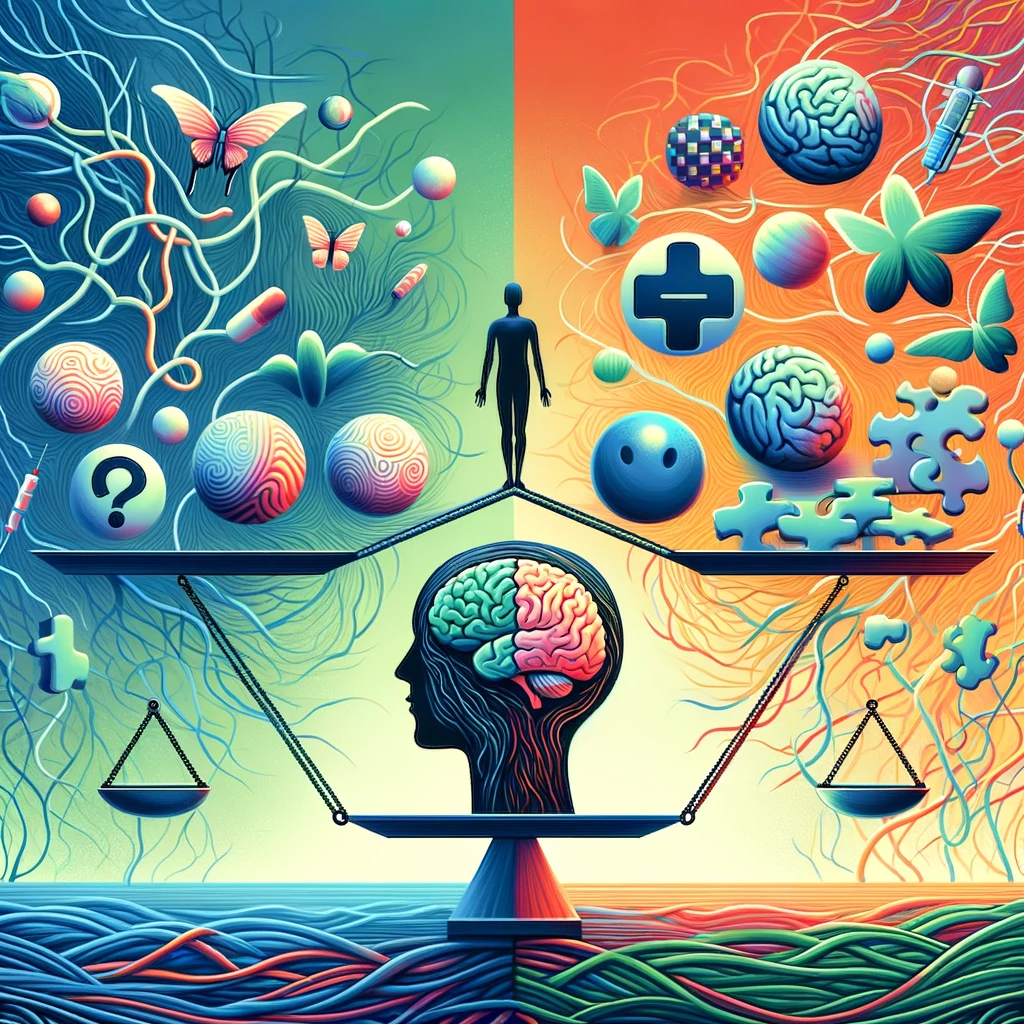Living and Thriving with ADHD & Anxiety: A Neurodivergent Guide
Coping with the dual challenges of ADHD and anxiety can be daunting when faced individually. When these conditions coexist, the obstacles may seem insurmountable. However, according to ADD.org, roughly 50% of adults with ADHD also endure an anxiety disorder. This underscores the need for informed insights into these overlapping conditions and development of strategic coping mechanisms.

As your trusted neurodivergent companion, GoblinX is committed to supporting you in overcoming the difficulties of ADHD and anxiety.
Decoding the Complexity: What does Coexisting ADHD & Anxiety Imply?
Attention-Deficit/Hyperactivity Disorder (ADHD) is marked by trouble with focus, hyperactivity, and impulsivity. This could translate to forgetfulness, poor organizational skills, and restlessness. Conversely, anxiety is characterized by persistent worry, nervousness, and fear. When ADHD and anxiety coexist, it may lead to an exacerbated manifestation of these symptoms.
Given the symptom overlap between ADHD and anxiety, they are often misdiagnosed for each other. Hence, accurate diagnosis is a pre-requisite for a promising intervention and support. Let's delve deeper into the coping strategies and treatments optimal for individuals grappling with ADHD and anxiety.
Key Strategies for Coping with ADHD and Anxiety
1. Decipher Your Symptoms
A crucial first step is understanding the interplay between ADHD and anxiety—their resemblances, contrasts, and how they potentially aggravate each other. Being aware of your triggers and how each condition affects you can offer better symptom management and foster a sense of control.
2. Customize Coping Strategies
Identifying activities and practices that help in controlling your ADHD and anxiety effectively is vital. This may encompass regular exercise, mindfulness practices, or pursuing creative outlets. Determining what works best for you and maintaining consistency is critical.
Note: The GoblinX app stands equipped with tools designed to help individuals with ADHD and anxiety to better manage their symptoms.
3. Avail Professional Help
Consulting therapists and mental health professionals for therapeutic strategies—like cognitive-behavioral therapy (CBT)—can be beneficial. CBT helps in managing and controlling negative thoughts that escalate anxiety. Such professionals can also assist in reinforcing tools that give you more control over your ADHD.
4. Maintain Organization
Since ADHD often affects memory and focus, maintaining an organized routine can prove beneficial. Utilizing daily planners or phone reminders can help stay on track. An organized environment can in turn reduce anxiety.
5. Prioritize Physical Health
Maintaining a healthy diet, regular exercise, and adequate sleep are essential for everyone and exceptionally beneficial for managing ADHD and anxiety. A balanced diet helps maintain stable blood sugar levels that impact mood and energy. Exercise acts as a natural stress-reliever and helps manage ADHD symptoms. Adequate sleep is crucial for controlling ADHD symptoms and may also alleviate anxiety.
Treatment Modalities for Coexisting ADHD and Anxiety
Individual needs are unique but several treatment methods have proven efficacious in managing ADHD and anxiety. Consult with your mental health professional or ADHD coach before starting any new treatment regimen.
1. Medication
Both stimulant and non-stimulant medications, as well as anti-anxiety drugs, may help in managing the symptoms of ADHD and anxiety. However, all medications carry potential side effects, so it's essential to consult with your healthcare provider to ensure appropriateness.
2. Therapy
Cognitive-behavioral therapy (CBT) has demonstrated reliability in managing both ADHD and anxiety. This therapy aids in understanding how your thoughts influence your behaviors and feelings; and how to modify those patterns for the better.
3. Self-Care
Self-care practices such as mindfulness and stress management techniques may contribute to alleviating the symptoms of ADHD and anxiety. These strategies encompass deep-breathing exercises, progressive muscle relaxation, and mindfulness meditation.
In conclusion, while navigating ADHD and anxiety may be challenging, it's crucial to remember that you're not alone. With the right support and tools like the GoblinX app, you are well-equipped to lead a fulfilling life.









